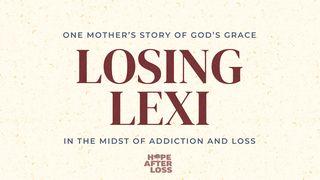Infidelity: Protecting Your Marriage, PornographySample

SPOUSE IS VIEWING PORNOGRAPHY
Pornography is a serious problem. Surprisingly, it’s not just a problem in society at large, but in the church as well. It’s making its impact felt even among men and women who claim to love God and who represent themselves as dedicated disciples of Jesus Christ. What’s more, there can be no doubt that involvement with pornography poses a very real threat to marriages both inside and outside the Christian community. If you have reason to believe that your spouse may be caught in this web, don’t minimize the situation. Instead, take steps to expose the truth and deal with it.
As you do, remember that pornography is addictive. It’s one of a number of sexual addictions that have become strikingly pervasive in contemporary society. Because it is rooted in the basic human craving for relationship, sexual addiction is tenacious and progressive in nature. To put it another way, porn is powerful primarily because it offers a counterfeit form of intimacy and attachment — a replacement for the one-flesh bond between man and woman that God designed to function as the glue that holds the marriage relationship together (Genesis 2:24). It’s important to bear these things in mind when seeking to help a loved one who has fallen prey to the deception that de-personalized sex can ultimately satisfy the longings of the human heart.
You should also be aware that, contrary to the common stereotype, this is not an exclusively male problem. It affects men and women, boys and girls, from every age group and all walks of life. According to surveys conducted by internet-filter-review.com, 33 percent of all visitors to pornographic websites are women.
If you suspect that porn addiction may be a problem in your marriage, it might be a good idea to start by taking a closer look at yourself, your spouse, and the situation in your household. Should you become convinced in the process that your spouse is hiding something from you, sit down with him or her and confront the issue head-on. Instead of blaming and accusing, express sincere concern. Lay out the reasons for your suspicions. Encourage some honest soul-searching. Ask your spouse to tell you frankly whether he or she has a problem with pornography. Point out that, because of its addictive nature, involvement with pornography can quickly spiral out of control.
If your spouse is unwilling to listen, see if you can enlist the help of an objective third party — a pastor, a relative or a friend who agrees with your assessment of the situation and who would be willing to come alongside you in order to strengthen your case. If, on the other hand, your spouse admits to having a problem, don’t heap condemnation on his or her head. Instead, offer your support and assistance.
If you are indeed dealing with a case of porn addiction, we suggest that you and your spouse seek professional Christian counseling, and we highly recommend that you do this together. The most successful course of treatment takes a family systems approach that involves an initial program of intensive therapy, followed by regular and ongoing counseling sessions. It’s also important to identify a trusted friend or group of individuals who will provide an environment of support and accountability.
In the meantime, you and your spouse might consider installing some accountability software on your computer. Please be advised that while software programs are not the ultimate answer to serious and complex problems of this nature, they can nevertheless play an important role in helping you keep tabs on the entire family’s online activities.
For more help, visit pureintimacy.org or Focus on the Family’s Help Center (http://family.custhelp.com/app/home).You can also call the ministry’s Counseling Department for a free consultation at 855-771-HELP (4357).
Pornography is a serious problem. Surprisingly, it’s not just a problem in society at large, but in the church as well. It’s making its impact felt even among men and women who claim to love God and who represent themselves as dedicated disciples of Jesus Christ. What’s more, there can be no doubt that involvement with pornography poses a very real threat to marriages both inside and outside the Christian community. If you have reason to believe that your spouse may be caught in this web, don’t minimize the situation. Instead, take steps to expose the truth and deal with it.
As you do, remember that pornography is addictive. It’s one of a number of sexual addictions that have become strikingly pervasive in contemporary society. Because it is rooted in the basic human craving for relationship, sexual addiction is tenacious and progressive in nature. To put it another way, porn is powerful primarily because it offers a counterfeit form of intimacy and attachment — a replacement for the one-flesh bond between man and woman that God designed to function as the glue that holds the marriage relationship together (Genesis 2:24). It’s important to bear these things in mind when seeking to help a loved one who has fallen prey to the deception that de-personalized sex can ultimately satisfy the longings of the human heart.
You should also be aware that, contrary to the common stereotype, this is not an exclusively male problem. It affects men and women, boys and girls, from every age group and all walks of life. According to surveys conducted by internet-filter-review.com, 33 percent of all visitors to pornographic websites are women.
If you suspect that porn addiction may be a problem in your marriage, it might be a good idea to start by taking a closer look at yourself, your spouse, and the situation in your household. Should you become convinced in the process that your spouse is hiding something from you, sit down with him or her and confront the issue head-on. Instead of blaming and accusing, express sincere concern. Lay out the reasons for your suspicions. Encourage some honest soul-searching. Ask your spouse to tell you frankly whether he or she has a problem with pornography. Point out that, because of its addictive nature, involvement with pornography can quickly spiral out of control.
If your spouse is unwilling to listen, see if you can enlist the help of an objective third party — a pastor, a relative or a friend who agrees with your assessment of the situation and who would be willing to come alongside you in order to strengthen your case. If, on the other hand, your spouse admits to having a problem, don’t heap condemnation on his or her head. Instead, offer your support and assistance.
If you are indeed dealing with a case of porn addiction, we suggest that you and your spouse seek professional Christian counseling, and we highly recommend that you do this together. The most successful course of treatment takes a family systems approach that involves an initial program of intensive therapy, followed by regular and ongoing counseling sessions. It’s also important to identify a trusted friend or group of individuals who will provide an environment of support and accountability.
In the meantime, you and your spouse might consider installing some accountability software on your computer. Please be advised that while software programs are not the ultimate answer to serious and complex problems of this nature, they can nevertheless play an important role in helping you keep tabs on the entire family’s online activities.
For more help, visit pureintimacy.org or Focus on the Family’s Help Center (http://family.custhelp.com/app/home).You can also call the ministry’s Counseling Department for a free consultation at 855-771-HELP (4357).
Scripture
About this Plan

If you’ve been married for a while, then you already know how challenging it can be to keep your romance alive. That’s why many couples look for creative ways to get a spark of intimacy going. It’s a great idea. But don’t be fooled: Pornography is never a positive ingredient of a healthy marriage. It is powerfully addicting and will eventually cause a severe breakdown in your relationship.
More
Related plans

Purpose, People, & Prevention: Thriving in Public Health With God

Same Page Summer

From Acceptance to Approval: Living a Life That Pleases the Father

Losing Lexi: One Mother's Story of Grace in the Midst of Addiction and Loss

Obedience: The Bridge to Intimacy

How to Deal With Difficult People

Hear God’s Whisper: 3 Days of Listening Prayer

Draw Your Sword

If Jesus Is Your Friend
